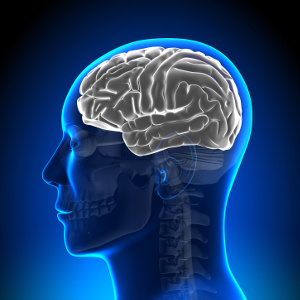A particular omega-3 fatty acid can boost your brain
 It is commonly known that oily fish and fish oil supplements contain the two omega-3 fatty acids EPA and DHA that are good for the brain. Now, scientists from Singapore have discovered a special omega-3 fatty acid that is of particular importance to brain cells that are surrounded by a protective myeline sheath. The scientists say that their discovery may help prevent brain ageing and lead to the development of new therapies aimed at treating neurological disorders like sclerosis that are associated with myelin damage. Their new study is published in Journal of Clinical Investigation and it appears that fish roe is the best source of these special omega-3 fatty acids that are needed to stimulate the myeline sheath.
It is commonly known that oily fish and fish oil supplements contain the two omega-3 fatty acids EPA and DHA that are good for the brain. Now, scientists from Singapore have discovered a special omega-3 fatty acid that is of particular importance to brain cells that are surrounded by a protective myeline sheath. The scientists say that their discovery may help prevent brain ageing and lead to the development of new therapies aimed at treating neurological disorders like sclerosis that are associated with myelin damage. Their new study is published in Journal of Clinical Investigation and it appears that fish roe is the best source of these special omega-3 fatty acids that are needed to stimulate the myeline sheath.
The human brain consists of around 100 billion neurons that are connected in a highly complicated neural network. Our neurons are responsible for controlling our thoughts, behavior, and motions, and they process all the input from our surroundings. Neurons comprise of dendrites that receive signals from other neurons, and axons, which are the long nerve fibers that transmit signals to other cells. All nerve fibers in our central nervous system (brain and spinal cord) are covered by a myelin sheath consisting of cells with a high fat content. This myelin sheath that is similar to the plastic cover of electric wires isolates the nerve fibers and ensures fast and effective transmission of electric signals. If, however, the protective sheath is damaged, the neurons lose their ability to function properly, and that may result in neurological impairment.
Our myelin sheaths degenerate as a natural part of the ageing process, and that is one of the reasons why older people gradually lose their physical and mental capacity. Myelin sheath damage is also seen in connection with neurological disorders such as sclerosis.
The omega-3 fatty acid LPC improves the myelinization of nerve fibers
The scientists behind the new study wanted to develop new therapies that can help improve the myelinization of nerve fibers. As part of this work, they have revealed that a protein called Mfsd2a carries a particular omega-3 fatty acid into the brain as part of the myelinization process. This omega-3 fatty acid is named LPC (lysophosphatidylcholine), and it is already known that genetic defects in the Mfsd2a protein may result in impaired myelinization and birth defects that can cause the baby’s head to be smaller than normal. Studies have shown that lack of Mfsd2a reduces the omega-3 fatty acid content in the myelin-producing cells (oligodendrocytes), thereby impairing the myelin-producing capability of these cells.
The new study shows that the special LPC-based omega-3 fatty acids are highly important for the development of the myelin-producing cells. This provides the researchers with new potential to develop therapies and nutritional supplements based on the LPC-based omega-3 fatty acids that support the myelinization in the ageing brain. These therapies may even be used for treating neurological disorders, including sclerosis, which is characterized by impaired myelinization.
Professor Silver and his team of scientists that were behind the new study discovered the Mfsd2a protein on an earlier occasion, and they have even worked together with other scientists to map out how exactly the LPC-based omega-3 fatty acids work in the brain and in other organs. Professor Silver and his research team plan to conduct preclinical studies to look closer at how LPC-based omega-3 fatty acids can help reconstruct the damaged myelin sheath. They also hope that supplements with these omega-3 fatty acids can help preserve or even improve cognitive functions in ageing people.
How do we get LPC-based omega-3 fatty acids?
There are three main types of omega-3 fatty acids: EPA, DHA, and ALA. EPA and DHA are primarily found in oily fish and shellfish, whereas ALA (alpha-linolenic acid) is found in various plant oils. LPC-based omega-3 fatty acids are special types of EPA or DHA that are found in large quantities in fish roe (lumpsucker, herring, salmon, and sturgeon)
The Mfsd2a protein is also believed to be able to transport LPC-based omega-3 fatty acids across the brain-blood barrier. It may therefore be useful to combine oily fish, shellfish, and fish roe in order to make optimal use of the omega-3 fatty acids for brain health.
Read more: Fish oil may help against depression
References:
Vetrivel Sengottuvel et al. Deficiency in the omega-3 lysolipid transporter Mfsd2a leads to aberrant oligodendrocyte lineage development and hypomyelination. The Journal of Clinical Nutrition. 27 April 2023
What Are The Best Omega-3 Supplement? Novolabs.com 2023
Search for more information...
- Created on .








